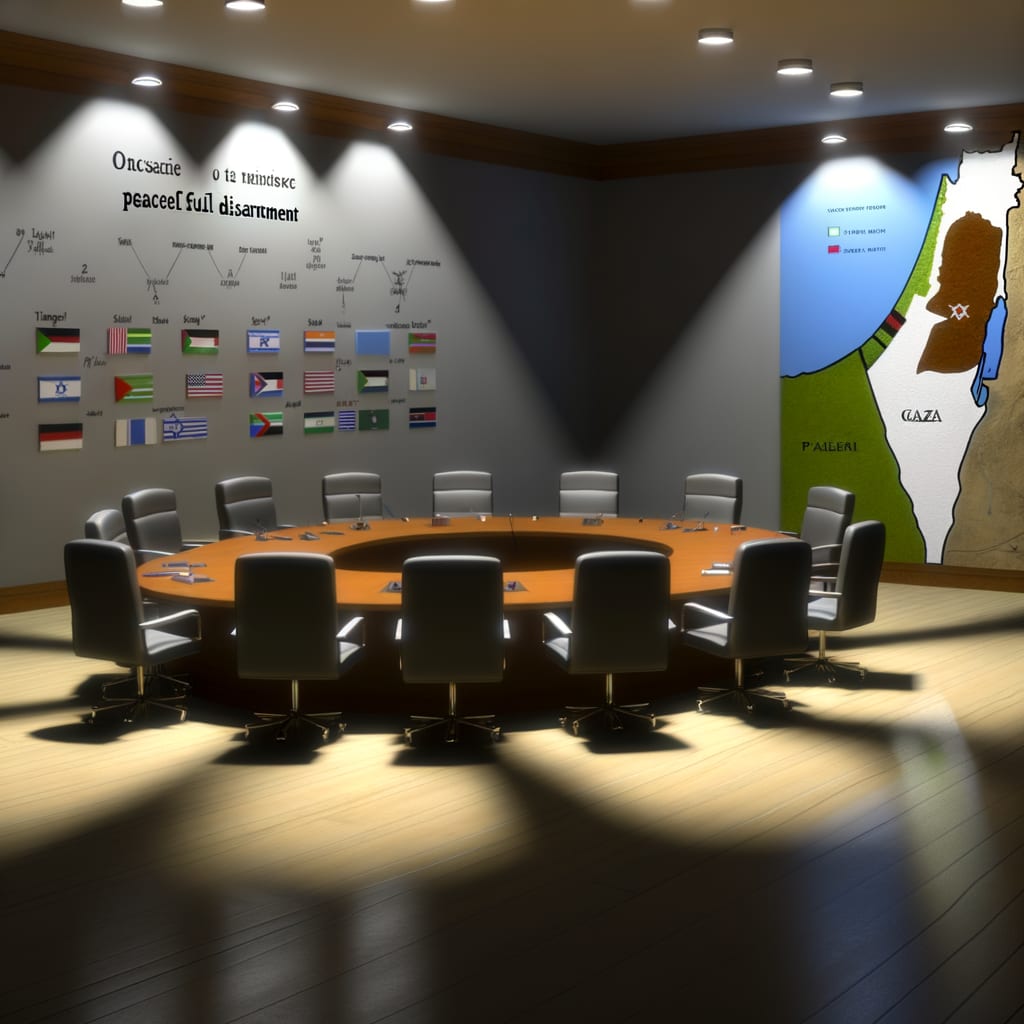Hamas Open to Disarmament Talks Amid Stiff Opposition to Foreign Control over Gaza
In a significant development, Hamas has expressed readiness to discuss disarmament within the framework of intra-Palestinian consultations, despite opposition to external interference in the governance of the Gaza Strip. These discussions are emerging as a crucial hurdle to securing a permanent end to the ongoing conflict with Israel. However, the militant group is firm in its stance against any foreign control over Gaza, while Israeli Prime Minister Benjamin Netanyahu insists that Hamas will be disarmed, one way or another.
Rejection of Foreign Guardianship
Hamas, along with other Palestinian factions including Islamic Jihad and the Popular Front for the Liberation of Palestine, has unequivocally rejected any form of foreign guardianship
over Gaza. This joint statement was issued in response to US President Donald Trump's plan to deploy international forces in the strip. The groups emphasized that the governance of Gaza is a purely internal Palestinian matter
, but expressed their readiness to accept assistance from Arab and international forces for the reconstruction and development of the region.
Disarmament Talks and Threats
While Hamas expresses its willingness to discuss disarmament, the group has been clear about its refusal to completely disarm. Hamas official Bassem Naim stated in an interview that the group would hand over its weapons to the military of a Palestinian state that includes its members, asserting their right to resist occupation.
Meanwhile, Israeli Prime Minister Netanyahu remains adamant about disarming Hamas. His aggressive stance has led to the signing of a Gaza deal where he threatened a return to war if his demands are not met 'the easy way'. Despite this, widespread Israeli support for the ceasefire is unlikely to translate into votes for Netanyahu's Likud party, creating a challenging political situation for the Prime Minister.
Potential Implications and Reactions
The shaky ceasefire agreement marks a significant turning point in the ongoing conflict, with many viewing it as a failure for the Israeli occupation regime to eliminate Hamas or recover captives through military force. On the other hand, Netanyahu's tough stance and threats of resuming war have raised concerns about the fragility of the ceasefire and the potential for renewed violence.
Senior Hamas official, Hossam Badran, warned that the Palestinian people and resistance forces would use all their capabilities to repel aggression if war resumes in Gaza. Concurrently, a report from La Repubblica revealed that at least 7,000 members of the Islamist movement's security forces have been mobilized, indicating readiness for potential conflict.
Current Status
As the ceasefire takes effect, the future governance of Gaza remains a contentious issue. The recent pronouncements by Hamas and Netanyahu reflect the complex and volatile situation in the region. However, the shared willingness for Arab and international participation in the reconstruction of Gaza offers a glimmer of hope for a peaceful resolution.
While the world watches these developments closely, the fate of the Gaza hostages, slated for release as part of Trump's broader Gaza plan, hangs in the balance. The successful implementation of this plan could pave the way for 'lasting peace', as envisioned by the US President.

